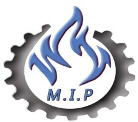Petrochemical Products
MIP Co. new corporate goal is to achieve the status of a truly business leader in the Middle-East. In this regard, MIP Co. entire staff and its management are working closely to have a company with excellent financial fundamentals, sound international operations, and a well-defined business system. Meanwhile MIP Co. with foreign offices and subsidiaries around the globe, including ENGLAND, GERMANY, CHINA, SINGAPORE, PAKISTAN, INDIA, U.A.E, S. KOREA, ARMANIA and TURKEY, as well as cooperating with more than 30 agents in different countries, is seeking new business developments to strengthen its global presence and successfully expand trade activities. Eventually, by improving its quantitative and qualitative facilities and services, MIP Co. endeavors to fulfill its customers’ requirements thoroughly.
Petroleum products marketed by MIPCo. are classified into 4 major categories:
- Chemicals
- Polymers
- Fertilizers
- Feedstock and Liquefied Gases
Aromatics are types of hydrocarbons derived from petroleum, characterized by one or more six-carbon rings (benzene rings) molecular structure and 'sweet' or aromatic odor. Benzene, toluene, and xylenes are the most common aromatics, and are extensively used in the chemical industry as chemical feed stocks, solvents, and as additives to gasoline to raise its octane rating.
Polymers are substances containing a large number of smaller, identical molecules (called monomers) linked together. These substances often form into a chain-like structure. Polymers have extremely high molecular weights and the chains may differ from one another in their molecular weights. Today, the polymer industry has grown to be larger than the aluminum, copper and steel industries combined. Polymers already have a wide range of applications that far exceeds that of any other class of material available. Current applications extend from adhesives, coatings, foams, and packaging materials to textile and industrial fibers, composites, electronic devices, biomedical devices, optical devices, and precursors for many newly developed high-tech ceramics. Examples are:
- Polypropylene
- Polyethylene (PE),
- Polystyrene (PS),
- PVC AND PET
Chemicals are substances formed by chemical union of two or more elements or ingredients in definite proportion by weight. They are produced by or used in a reaction involving changes in atoms or molecules. Generally, "chemicals" refers to a much wider class of substances that includes many mixtures of chemical substances that often find application in many vocations.
There are two major types of chemicals:
- Inorganic Chemicals are compounds that do not contain hydrocarbon groups.
- Organic Chemicals are compounds containing hydrocarbon groups.
Chemicals are used to make a wide variety of consumer goods, as well as thousands inputs to agriculture, manufacturing, construction, and service industries. Examples are:
- Methanol
- Di Ethylene Glycol (DEG)
- Mono Ethylene Glycol (MEG)
- Linear Alkyl Benzene (LAB)
- HAB
- Crystal Melamine
- Epoxy Resins
- Acetic Acid
- TDI
- Soda Ash
- Sodium Bicarbonate
- Sodium Hypochlorite
- Chlorine
- Nitrogen
- Sodium Carbonate Light
- Nitric Acid
- Hydrogen Chloride
- MTBE
- Ethyl Benzene
- Vinyl Chloride Monomer (VCM)
- Argone
Fertilizers are a large number of organic and synthetic materials, spread on or worked into soil to increase its capacity to support plant growth. Fertilizers are divided into two broad groups: organic and inorganic, or chemical. Organic fertilizers are derived from living plants or animal sources. Chemical fertilizers are usually manufactured and have the advantage of low cost. The commonly used synthetic fertilizers consist almost entirely of nitrogen, potassium and phosphorus in forms that are readily utilized by plants.
- Anhydrous Liquid Ammonia
- Granular Sulphur
- Urea
- Ammonium Sulphate
- Explosive Ammonium Nitrate
- Ammonia Sulphate
- Agricalture Ammonium Nitrate
- Di Ammonium Phosphate (DAP)
Liquefied gases and feed stocks are substances used especially as fuels or as raw materials supplied to processing plant for chemical synthesis. Some hydrocarbons such as ethylene, 1, 3-butadiene, propane and butane are classified in this category.
Products:
- Propane
- Heavy End
- Butane
- Ethylene
- Pentane Plus (C5+)
- Raffinate (C6-Non Aromatic)
- Dry Pyrolysis Gasoline (DPG)
- 1,3 Butadiene
- C4-Raffinate
- Butene - 1
- LPG
- C4 CUT
- Propylene
- Polypropylene - PI 080
- Raffinate
- C6- Non Aromatic
- Ethane
- Ethylene Dichloride
- Fuel Oil
- Propylene (Polymer Grade)
- Light End
